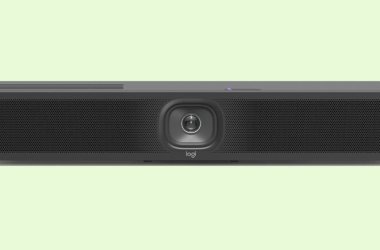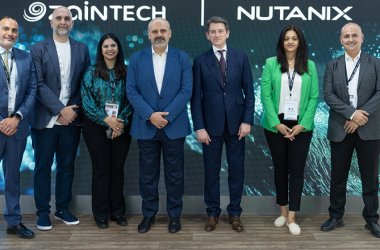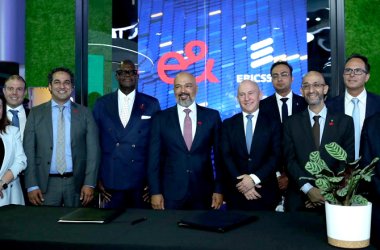 What will Huawei Enterprise be focusing on at GITEX this year?
What will Huawei Enterprise be focusing on at GITEX this year?
Huawei will preview how its integrated portfolio of end-to-end and focused vertical industry solutions can be used to create a competitive business advantage in the fields of public safety, oil and gas, transportation, government, hospitality, education and healthcare and banking. Being a vendor which has a wide range of product and solutions offering vertical industry solutions is becoming our clear edge in the market.
Additionally , Huawei ‘s leading global and regional experts will highlight key trends that are driving its innovative ICT solutions in the Middle East such as the service-driven cloud solutions, critical communication networks for Safe city, Agile Service Connections and Smart IoT solutions based on 4.5G and Software Defined Networking (SDN) technologies.
Huawei will also unveil a series of new additions to its solutions portfolio as part of our Product Launches, coupled with live demonstrations and interactive case studies offering strategic guidance to governments and businesses on how to approach developing an IoT wide infrastructure. We will also sign some MoU’s with of our alliances with some major industry partners.
What sort of uptake has Huawei seen of SDN technologies?
Since its global rollout in 2013, Huawei’s SDN ready Agile Networks (SDN ready) has been deployed by over 200 names in the fields of government, finance, healthcare, education and more. Its latest addition of the Agile Controller—which forms part of the wider Huawei Agile Network solution—enables organizations to benefit from more orchestrated, real-time connections between their services and their IT network.
What progress has been made in cloud adoption in the region?
Cloud adoption has witnessed a significant increase in interest in recent years within the Enterprise sector. There is currently a prevalence to move the sensitive applications to their own private cloud platform where the Cloud Service Brokerage will make both public and private cloud services fully transparent to the users with single sign on.
Vendors like Huawei build one-stop data center solutions for enterprises and telecom operators with the capacity to integrate facilities like power and cooling, provide a storage and network infrastructure, develop a virtualized platform and deliver a complete centralized management suite.
What is Huawei doing in developing smart cities, and working with partners to make smart cities a reality?
We are blessed with the fact that Dubai has developed itself as a one of the best examples of a Smart City in the region and there is a lot we can further contribute. As His Highness Sheikh Mohammed bin Rashid Al Maktoum moves Dubai toward his vision 2020, Dubai could be one of the leading Smart Cities in the world. Our world is increasingly city-centric, and within the Middle East cities of the future will need to become more intelligent through connected infrastructure that can positively transform the way in which citizens and businesses experience their world. At Huawei, we identified the demand for smart city expertise and envisioned that we could work with regional governments to help them become better connected.
What is Huawei doing in the area of IoT?
We are aiming to create the right platform, ecosystem and devices that match the IoT market. Huawei has recently launched the “10KB LightOS” for further development. “LiteOS” is the “lightest” software of its kind, used to power a range of smart devices and can be utilized in every industry vertical.
When do you think the region will start to gain the benefits of smart cities and IoT?
If we look within the UAE we are very fortunate here that we have extensive high quality, high availability networks both on fixed and mobile broadband networks. The 4G coverage in the UAE is quite extensive but we are already working with operators to develop 5G networks.
Mobile internet, big data, cloud computing and smart devices are all playing a critical role in propelling the advancement of the ICT industry. Advanced wireless networks like 4 & 5G mobile broadband make ubiquitous connectivity possible, while cloud computing makes data sharing and integration, data mining and analysis possible. Unified Communications and Collaboration helps to make cross sector collaboration possible and increases urban management and emergency efficiency.
Development of faster MBB networks will help offer solutions for city leaders to address current challenges such as public security issues, shortage of educational and medical resources, traffic congestion, high pollution costs, decreasing energy productivity efficiency and food security issues.





